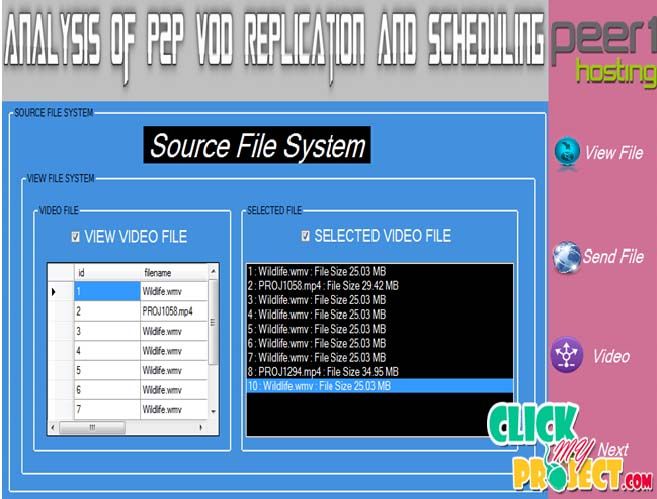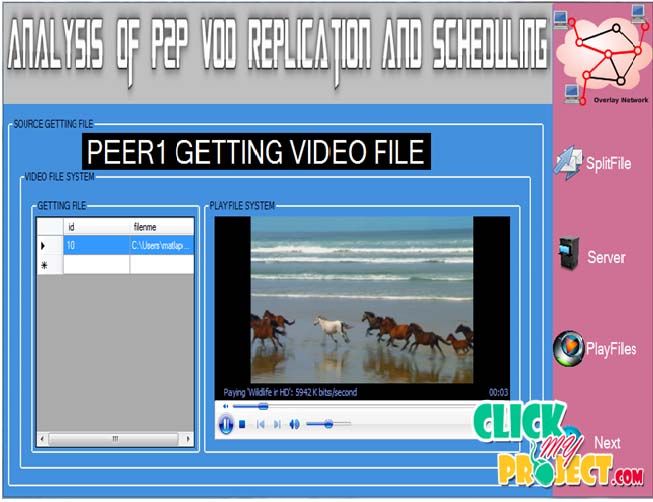A Unifying Model and Analysis of P2P VoD Replication and Scheduling
₹3,000.00
10000 in stock
SupportDescription
We consider a peer-to-peer (P2P)-assisted video-on-demand (VoD) system where each peer can store a relatively small number of movies to offload the server when these movies are requested. User requests are stochastic based on some movie popularity distribution. The problem is how to replicate (or place) content at peer storage to minimize the server load. Several variations of this replication problem have been studied recently with somewhat different conclusions. In this paper, we first point out and explain that the main difference between these studies is in how they model the scheduling of peers to serve user requests, < Final Year Projects > and show that these different scheduling assumptions will lead to different “optimal” replication strategies. We then propose a unifying request scheduling model, parameterized by the maximum number of peers that can be used to serve a single request. This scheduling is called Fair Sharing with Bounded Degree (FSBD). Based on this unifying model, we can compare the different replication strategies for different degree bounds and see how and why different replication strategies are favored depending on the degree. We also propose a simple (primarily) distributed replication algorithm and show that this algorithm is able to adapt itself to work well for different degrees in scheduling.





